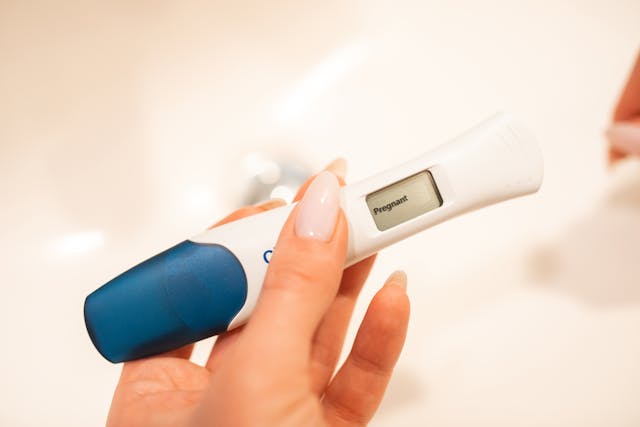Postpartum anxiety may be more common than experts once thought, say recent studies.
One study, published in the March 4th edition of the American Journal of Pediatrics, found that symptoms of postpartum anxiety were reported more often by mothers than were symptoms of postpartum depression, at least in the first 6 weeks postpartum.
Symptoms remained in many of those women until 6 months postpartum, while some mothers reported the onset of symptoms at 6 months or more.
Women reported that anxiety symptoms interfered with the length of time in which they breastfed their babies and increased their need for medical services, including inpatient care, emergency room visits, and unplanned outpatient medical services.
Surprisingly, postpartum anxiety was most commonly found in women without symptoms of depression.
In light of these new findings, professionals are urging the screening of new mothers for symptoms of anxiety, and the raising of awareness.
Postpartum anxiety can be just as debilitating as postpartum depression. The seriousness of the illness depends on how much it affects the mother’s daily life. While some anxiety about caring for the baby and other factors is normal after delivery, excessive worrying, repetitive or obsessive behaviors, and intrusive thoughts should be addressed.
Know the Warning Signs
If you or a loved one has given birth recently, be aware of the signs of postpartum anxiety and whether or not it is affecting the ability to lead a normal daily life (as normal as life can be with a baby.)
Symptoms of Postpartum Anxiety:
- General anxiety symptoms: restlessness, fidgeting, trouble sleeping, loss of appetite, nausea, hot flashes, recurring dizziness
- Recurring intrusive thoughts (often negative, bizarre, or dangerous)
- Repetitive acts or routines to calm anxiety (hand washing, tapping, obsessive cleaning, folding and unfolding clothes, etc.)
- Unusually or extremely protective or fearful (she may be overly protective of the baby or fearful of being left alone with the baby, sudden fear of germs or public places, etc.)
- Panic attacks (uncontrollable panic which may include: heart rate increase, difficulty breathing deeply, sudden onset claustrophobia, numbness, tingling, feeling of chest tightness)
Postpartum anxiety can interfere with the breastfeeding relationship, mother and baby bonding, and can make it difficult to enjoy having a new baby. If symptoms are making daily life difficult or if thoughts and actions are becoming worrisome, encourage the mother (or yourself, if you are the mother) to seek help as soon as possible.
Remember that symptoms can present themselves anytime within the first year postpartum, and sometimes even longer after that.
Sometimes, symptoms can get better on their own. Many times they do not. If you believe that you or a loved one is struggling with postpartum depression, talking with your midwife or health care provider is recommended.
A note to mothers: Admitting that you are struggling or that you feel out of character is the first step to getting better. The sooner you seek help, the sooner you can feel better.
Resources:
Postpartum Anxiety – Postpartum Living
A Toolkit for Postpartum Anxiety Panic Symptoms
The Symptoms of Postpartum Depression and Anxiety in Plain Mama English





I feel like it’s such a fine line between some of the symptoms for depression and anxiety, particularly when you’re suffering from them. It’s frequently hard to distinguish between the two.
Traci, I”m so sorry you experienced that. I think that can be true of some women. I think that whenever you are feeling unusually down or anxious following birth, both are warning signs that you may need help. Having suffered from both anxiety and depression in the past, I can say that my postpartum depression was just that, depression, and didn’t have much anxiety attached to it.
ANd I had only anxiety and no depression after 2 of my daughters. Took about 7 weeks to resolve. I took lots of vitamins which I think helped – B complex and Vitamin E. If I knew what I know now I would also have taken Vitamin D.